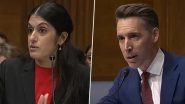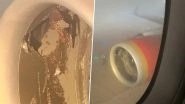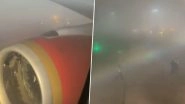Berlin, Oct 9 (AFP) Berlin could shut out diesel drivers from major arterial roads next year, after a court Tuesday ordered the German capital to follow in the footsteps of Hamburg, Frankfurt and Stuttgart with exclusion zones.
A renewed focus on air quality in the wake of Volkswagen's 2015 "dieselgate" scandal -- in which the car giant admitted to cheating regulatory tests on 11 million cars worldwide -- has seen a wave of courtroom action across Germany.
In the capital city, "the current clean air plan does not include sufficient measures to meet annual limits for nitrogen dioxide (NO2)," the Berlin judges said.
City authorities "must order a driving ban for the streets where the threshold is not met," targeting cars up to the Euro 5 emissions standard, they ruled.
Local media estimate that this would affect as many as 200,000 cars, some only three or four years old, with some exceptions, including for tradesmen.
Definite exclusion zones include 11 stretches of major arteries, and Berlin must also examine whether driving bans are needed on a further 15 kilometres (nine miles) of road, a tiny fraction of its total 5,343 kilometres.
"This ruling is a ringing slap in the face" for the government, Greenpeace transport spokesman Benjamin Stephan said.
"As long as the car industry is not forced into hardware refits for all dirty diesels in every city, driving bans will be the only effective measure." - 'Good day for clean air' -
Tuesday was "a good day for clean air," agreed Juergen Resch, head of the DUH environmentalist group that brought the court case.
"In Berlin we have 250,000 people who suffer from asthma, including 50,000 children." Nitrogen oxides (NOx) including NO2 are estimated to cause thousands of premature deaths in Germany each year.
According to the World Health Organisation (WHO), the gases aggravate asthma and bronchitis symptoms and are linked to cardiovascular and respiratory disease. In Berlin, annual average levels reach 49 milligrammes per cubic metre -- well above the federal government's 40-milligramme limit -- while in 14 other cities levels exceed 50 milligrammes.
Germany is one of a number of countries that have missed European Union deadlines to bring down levels of NOx in urban air, opening them to potential legal action from Brussels.
Chancellor Angela Merkel's "grand coalition" of conservative CDU and centre-left Social Democrats (SPD) have wrangled over diesel with one another and with the car industry for a year.
The aim: reducing air pollution without loading new costs onto drivers, imposing more driving bans or hobbling the country's vital car industry as it confronts rising challengers from the United States and China.
Ministers last week unveiled a plan counting on car drivers to trade in older diesels for newer, less polluting models, or to have them refitted with more effective exhaust treatment systems.
But with no legal tools to put the squeeze on carmakers, the politicians said they had to negotiate further with the firms to get them to pay for such modifications. Manufacturers Volkswagen and Mercedes-Benz maker Daimler have agreed to at least examine refits, while BMW continues to reject them.
All three would prefer to sell millions of new cars with help from "trade-in discounts" of up to 8,000 euros (USD 9,162).
The changes come as several German courts have so far backed environmental campaigners.
Port city Hamburg has already closed stretches of two major roads to older diesels, while Stuttgart -- home to Mercedes-Benz and VW subsidiary Porsche -- will ban them from much of its streets from next year.
Judges also recently ordered a ban in the city centre of Frankfurt, Germany's financial hub that sees an influx of tens of thousands of commuters each day. (AFP) PMS
(The above story is verified and authored by Press Trust of India (PTI) staff. PTI, India’s premier news agency, employs more than 400 journalists and 500 stringers to cover almost every district and small town in India.. The views appearing in the above post do not reflect the opinions of LatestLY)













 Quickly
Quickly


